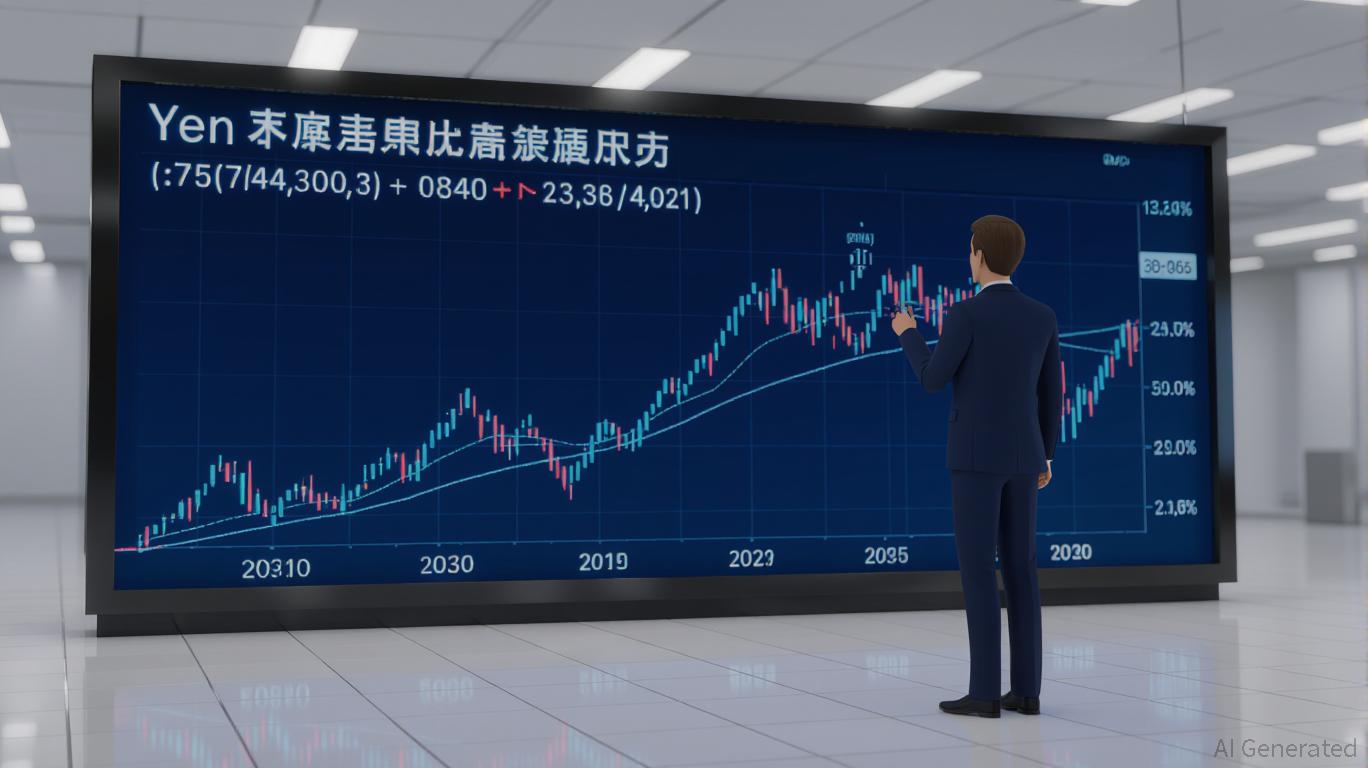
Japan’s equity markets stand at a crossroads, shaped by a confluence of political uncertainty, currency volatility, and structural reforms. The July 2025 upper house election, which saw the ruling Liberal Democratic Party (LDP) lose its majority, has introduced legislative gridlock and speculation about leadership changes [4]. This political instability has amplified risks for fiscal policy coherence, with opposition parties pushing for consumption tax cuts that could strain Japan’s already high public debt [6]. Meanwhile, the yen has weakened amid expectations of expansionary fiscal measures and rising bond yields, creating a complex backdrop for investors [4].
Yet, for contrarian investors, this volatility presents opportunities. Japanese equities trade at a significant discount to global peers, with the TOPIX at 15.2x forward P/E versus the S&P 500’s 17.5x [1]. Sectors like manufacturing (P/E 15.2x) and logistics (P/E 16.5x) are undervalued by 20–32% relative to intrinsic value, offering compelling entry points [3]. Structural reforms—including ¥9.6 trillion in corporate buybacks in 2023 and improved governance—have enhanced capital efficiency, while wage growth of 4.8% in late 2024 signals a break from decades of deflation [1].
Historically, Japanese equities have thrived during yen depreciation, as a weaker currency boosts export competitiveness and corporate profits [2]. For example, during the 2020–2022 pandemic, the TOPIX outperformed global indices despite initial volatility, driven by reflationary trends and fiscal stimulus [6]. However, political uncertainty can disrupt this dynamic. The LDP’s potential loss of majority has raised concerns about delayed trade negotiations with the U.S. and inconsistent fiscal policies, which could exacerbate yen weakness and bond yield volatility [1].
To navigate these risks, investors should adopt a barbell strategy. Defensive sectors like utilities and consumer staples offer stability during yen fluctuations, while small-cap and value stocks provide upside potential [3]. Currency-hedged ETFs, such as the iShares Currency Hedged MSCI Japan (HEWJ), can mitigate yen volatility for foreign investors [3]. Additionally, hedged Japanese Government Bond (JGB) positions generated a 10.3% return differential between 2023 and 2025, underscoring the value of hedging in a high-yield environment [1].
The asymmetry of risk and reward is clear: Japanese equities’ low valuations limit downside, while structural reforms and trade normalization could drive long-term gains. For instance, the Nikkei 225’s 12.4% single-day drop in August 2024 was followed by a 10.2% rebound, illustrating the market’s resilience amid macroeconomic turbulence [2]. Investors willing to tolerate short-term volatility may find value in undervalued sectors like financials and tech, which are poised to benefit from improved corporate governance and global trade normalization [5].
In conclusion, Japan’s equity market offers a compelling case for contrarian positioning. While political and currency risks persist, the combination of attractive valuations, structural reforms, and a potential yen rebound creates a favorable risk-reward profile. Strategic entry points lie in undervalued sectors and hedged instruments, allowing investors to capitalize on a market at a turning point.
Source:
[1] Japanese Equities: A Contrarian’s Delight Amid Trade Tensions and Elections [https://www.ainvest.com/news/japanese-equities-contrarian-delight-trade-tensions-elections-2507/]
[2] An Old Battle with Attractive Implications: Japanese Equities vs the Yen [https://www.wisdomtree.com/investments/blog/2024/02/13/an-old-battle-with-attractive-implications-japanese-equities-vs-the-yen]
[3] Contrarian Sentiment in Japanese Equities: Navigating Bearish Bets at a Market Crossroads [https://www.ainvest.com/news/contrarian-sentiment-japanese-equities-navigating-bearish-bets-market-crossroads-2508/]
[4] Japan’s Election Impact on Yen & Bond Yields [https://www.validusrm.com/2025/07/30/japans-power-shift-what-the-ballot-means-for-yen-yields/]
[5] Why Stay Invested in Japan [https://www.eastspring.com/insights/deep-dives/why-stay-invested-in-japan]
[6] Japan’s 2025 Upper House Election: Fiscal Reckoning, Market Jitters, and the Waning Patience of the Middle Class [https://www.fairobserver.com/election-news/japans-2025-upper-house-election-fiscal-reckoning-market-jitters-and-the-waning-patience-of-the-middle-class/]


AloJapan.com